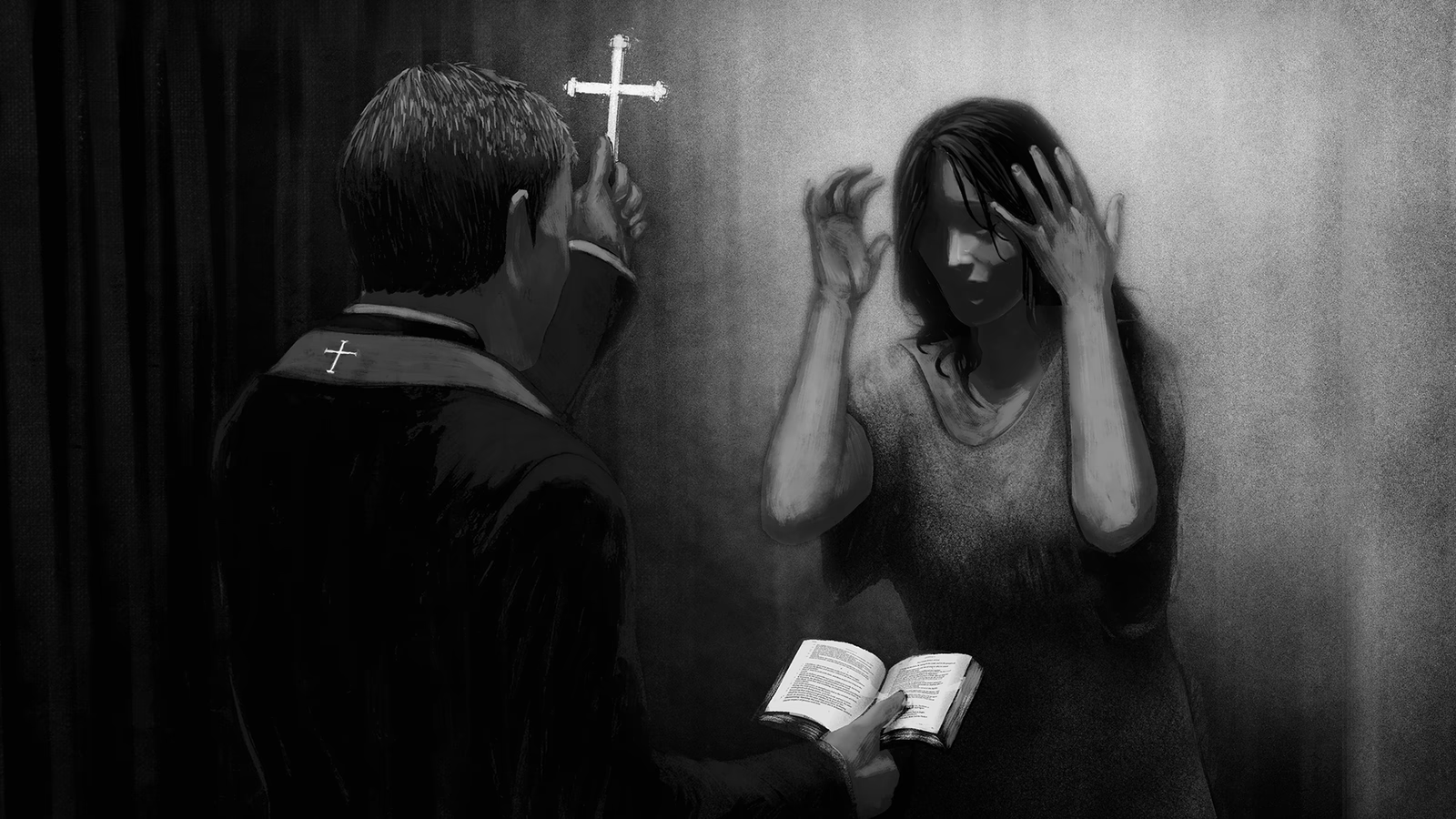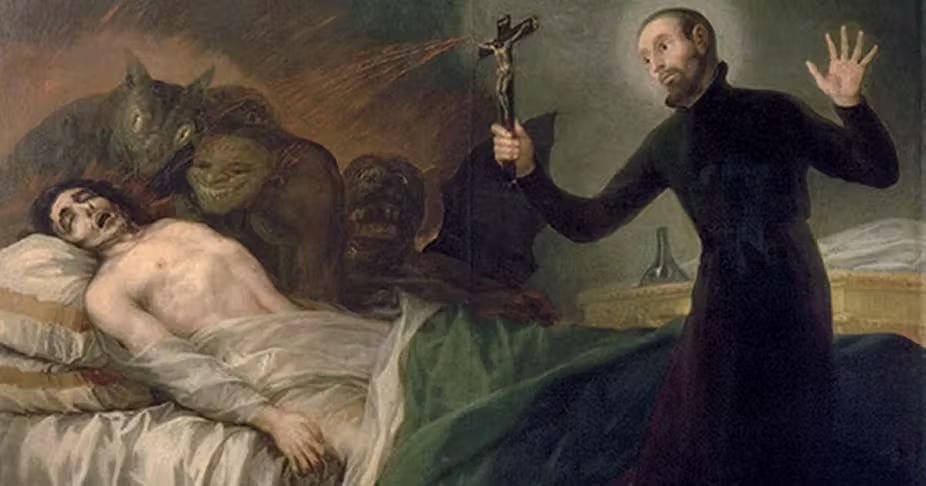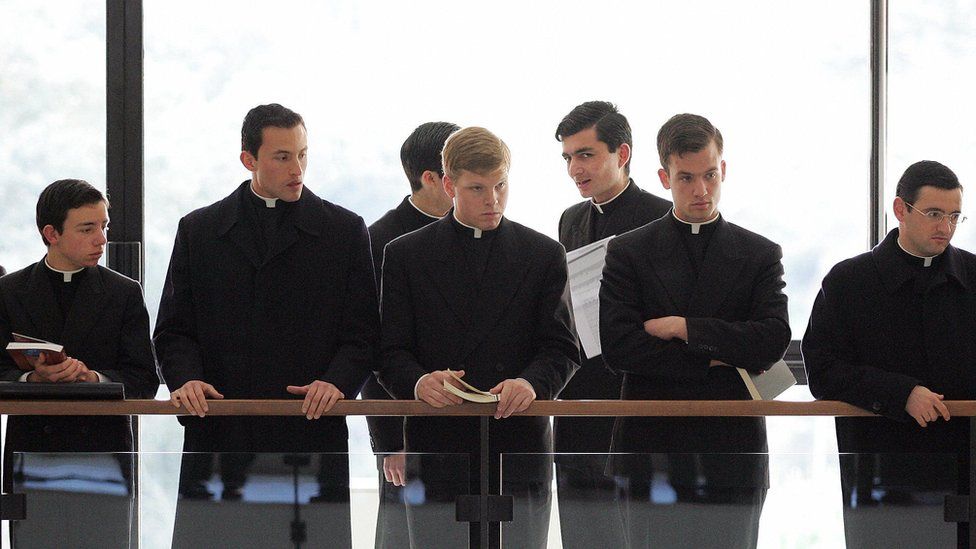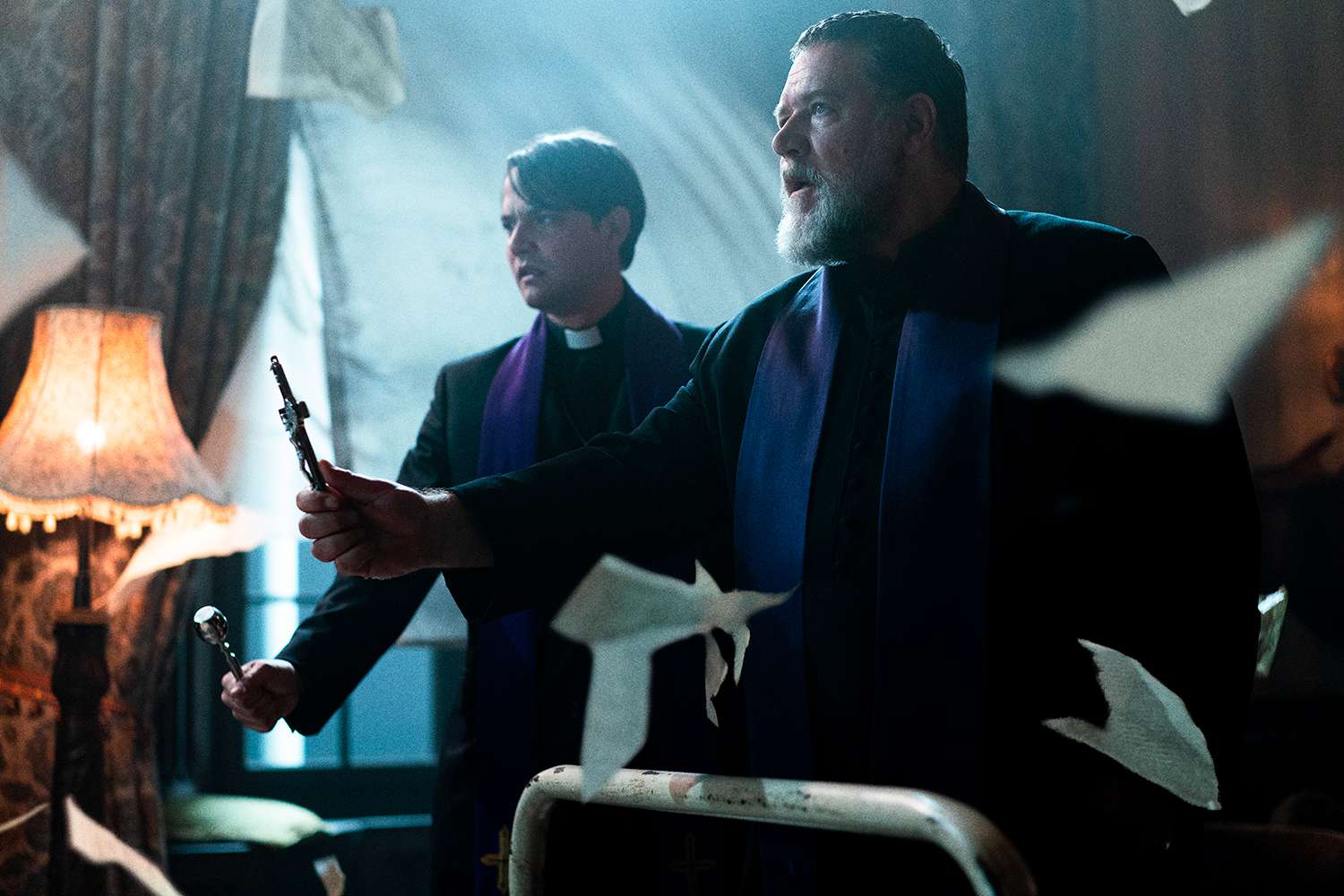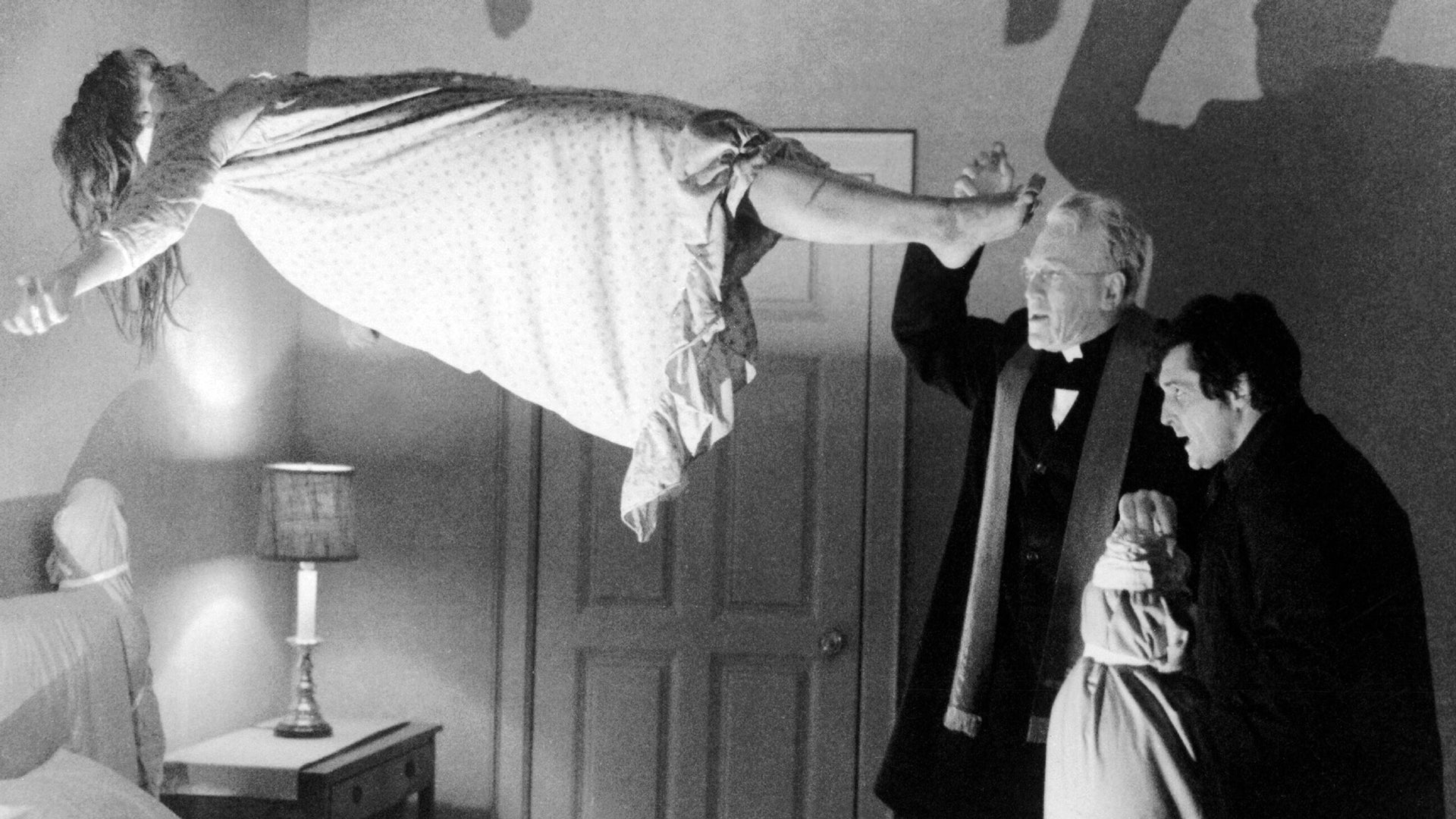The Role Of The Exorcist - Warriors Of Faith
The role of the exorcist has long been shrouded in mystery, intertwined with spiritual beliefs, and embedded in cultural histories. In this exploration, we unravel the complexities and significance of the exorcist's role, delving into the spiritual battles they undertake to dispel malevolent forces.
Author:Evelyn AdamsReviewer:Calvin PenwellJan 10, 2024388 Shares64.6K Views
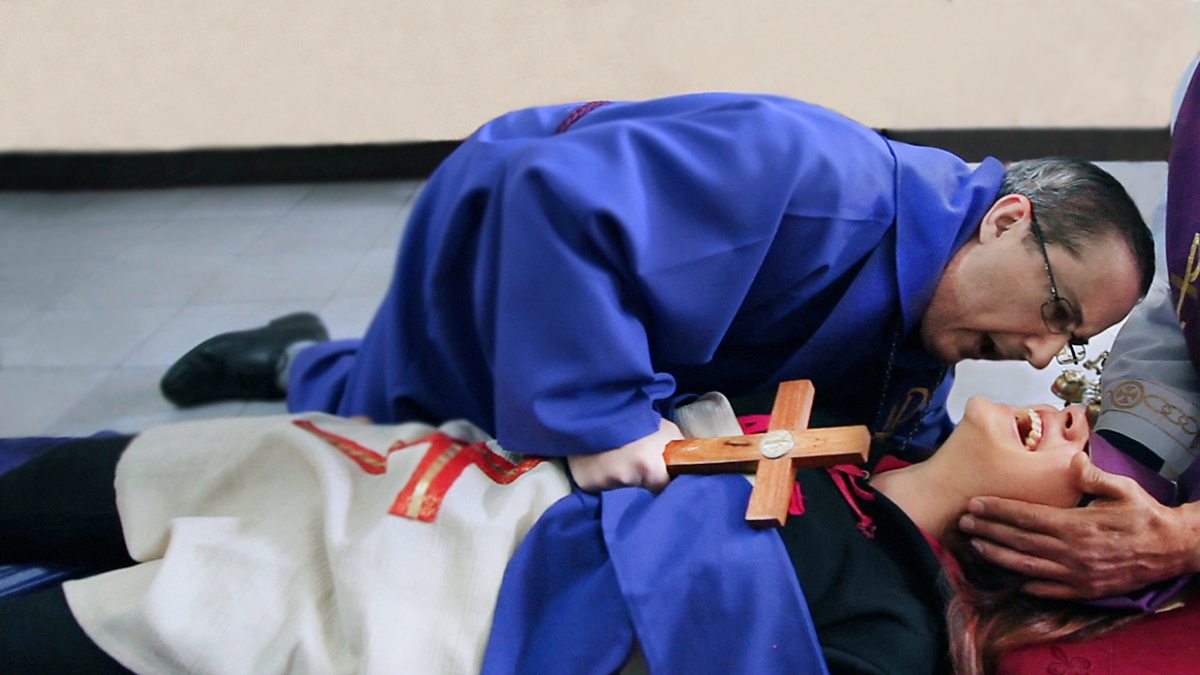
The role of the exorcisthas long been shrouded in mystery, intertwined with spiritual beliefs, and embedded in cultural histories. In this exploration, we unravel the complexities and significance of the exorcist's role, delving into the spiritual battles they undertake to dispel malevolent forces.
Ancient Beginnings
In the annals of human history, the practice of exorcismemerges as a venerable tradition with roots deeply embedded in ancient cultures across the globe. From the mystic rites of indigenous communities to the sacred rituals inscribed in early religious texts, the role of the exorcist unfolds as a timeless phenomenon that transcends cultural boundaries.
Shamanic Practices And Spiritual Harmony
Ancient civilizations, guided by spiritual wisdom, often turned to shamans for their ability to commune with the spiritual realm. These shamans, revered for their connection to unseen forces, played a pivotal role in the early expressions of exorcism. Their practices were steeped in the belief that spiritual harmony was essential for the well-being of the community, necessitating the expulsion of malevolent entities.
Rituals Embedded In Early Religious Texts
As human societies evolved and organized religions took shape, the concept of exorcismfound a place within the sacred texts of various faiths. The Vedas of Hinduism, the Bible in Christianity, and the Quran in Islam all contain references to the expulsion of evil spirits. The early religious texts serve as foundational pillars, shaping the rituals and beliefs associated with the role of the exorcist.
Evolution Across Diverse Cultural Landscapes
The historical journey of exorcismis marked by its adaptability and assimilation into diverse cultural landscapes. The role of the exorcist evolved in tandem with the spiritual beliefs, mythologies, and practices of different civilizations.
Integration Into Cultural Mythologies
In cultures where mythology played a central role, the exorcist became intertwined with narratives of gods, goddesses, and supernaturalbeings. Their interventions, often portrayed as epic battles between good and evil, mirrored the struggles inherent in the human condition.
Cultural Syncretism And Adaptation
As societies encountered new belief systems through exploration and conquest, the role of the exorcist underwent transformations through processes of syncretism. The blending of religious and cultural practices resulted in unique expressions of exorcism that reflected the amalgamation of diverse influences.
Delving Into Sacred Scriptures - A Divine Blueprint For Exorcism
The practice of exorcism, deeply embedded in religious traditions, finds its scriptural roots within the sacred texts of Christianity, Judaism, and Islam. These revered scriptures not only provide a spiritual compass for believers but also serve as a foundational guide for exorcists, delineating the divine authority bestowed upon them and the prescribed methodologies for confronting malevolent entities.
Christianity - Unveiling The Spiritual Arsenal In The Bible
Within the pages of the Christian Bible, the practice of exorcism unfolds as a dynamic and potent force. Delve into the New Testament, where accounts of Jesus' own exorcisms establish a precedent for believers. From the powerful narratives of demonic encounters to explicit references in the teachings of Jesus, the Bible forms the cornerstone of Christian exorcism, providing authority and guidance for those who undertake this sacred duty.
To truly understand Christian exorcism, one must explore the profound connection between faith and the practices outlined in the Bible. This connection not only shapes the approach of believers in spiritual warfare but also serves as a source of inspiration and empowerment. For a deeper exploration of the intertwining elements of faithand Christian exorcism, visit Fellowship Baptist Church in Waco, where the spiritual journey is enriched through faith in Christianity.
Judaism: Ancient Texts And The Expulsion Of Demons
In Judaism, ancient texts such as the Talmud offer insights into the authoritative role of exorcists. The Talmudic traditions outline the spiritual tools and methodologies employed by Jewish exorcists to confront malevolent forces. Explore how these foundational texts establish the divine authority underpinning the act of exorcism in Jewish belief systems.
Islam: The Quranic Framework For Spiritual Purification
The Quran, the holy book of Islam, serves as a comprehensive guide for believers, encompassing various aspects of spiritual life, including exorcism. Investigate the Quranic verses that address the expulsion of malevolent entities and the spiritual purification of believers. Understand how Islamic exorcists draw upon these sacred texts to navigate the realms of spiritual warfare.
Authority Granted To Exorcists - An Unveiling Of Spiritual Empowerment
Divine Commission And The Role Of Exorcists
In each religious tradition, the authority granted to exorcists is not arbitrary but rather a divine commission rooted in sacred scriptures. Examine how these texts empower exorcists to act as spiritual warriors, entrusted with the sacred duty of confronting and expelling malevolent entities.
Prescribed Methodologies
The methodologies prescribed for exorcism are intricately woven into the fabric of religious scriptures. Uncover the rituals, prayers, and spiritual practices outlined in these texts that guide exorcists in their endeavor to confront and banish malevolent forces. From the invocation of divine names to the use of sacred symbols, the scriptures provide a spiritual blueprint for effective exorcism.
How To Perform An Exorcism
Initial Assessment And Discernment
The journey into exorcism begins with a thorough assessment to discern whether the situation calls for such a profound intervention. Signsof malevolent preternatural activity, aversion to sacred elements, and speaking in tongues accompanied by demonic forces prompt the Church to initiate a careful evaluation. Confirmation of supernatural activity leads to the decision to proceed with an exorcism, always with the explicit consent of the afflicted individual.
Assembly Of The Exorcism Team
Once the decision is made, a priest appointed by the bishop takes charge, forming a team that includes a doctor, a lawyer, and others to stand guard during the ritual. The priest, having previously confessed and received the holy Sacrament, leads the team in a comprehensive and spiritually fortified approach to combat malevolent forces.
Invocation And Litany
The exorcism ritual commences with the litany of the saints, an invocation to the Holy Mother of God, and a plea for assistance from the holy angels. Addressing the possessed in Latin, the priest seeks answers regarding the demon's name, entry point, and conditions for departure. These inquiries serve as a tactical approach to weaken the malevolent forces and gauge their reactions.
Utilization Of Sacred Elements
Sacramentals, such as exorcism salt, water, and oil, play a crucial role in the ritual. The priest invokes the Holy Name of God and our Lord Jesus Christ in Latin, employing ancient prayers from both Eastern and Western Church traditions. The use of these sacred elements serves as a powerful conduit for divine intervention, symbolizing spiritual purification and protection.
Knowledge And Discernment
An exorcist, having undergone a course in demonology, relies on extensive knowledge to discern signs and navigate the state of the victim. The priest may employ specific prayers, especially when the victim falls into a trance or levitates, requiring the assistance of other team members, including the doctor.
The Power Of Confession And Faith
The battle against malevolent forces often entails multiple sessions, each lasting for hours. The priest, armed with the authority derived from the name of the demon, directly addresses the demonic entity through the reading of holy Gospels, further vexing them. Full confession, the profession of love for the Lord, and unwavering faith in Jesus are instrumental in the liberation of the afflicted.
Post-Exorcism Procedures
Following a successful exorcism session, the team engages in a Thanksgiving Te Deum and cleansing prayers. The doctor affirms the health status of the victim, ruling out psychological factors, while the lawyer serves as a legal witness to the proceedings. Witnesses who assist in prayer and support ensure a holistic approach to the aftermath of the ritual.
Ethical Considerations In Exorcism - A Multifaceted Landscape
Skepticism From The Medical Community
One of the primary challenges faced by exorcists is skepticism from the medical community. The manifestation of symptoms associated with possession, such as altered states of consciousness or unusual behaviors, often intersects with the realm of mental health. Examine how exorcists navigate the delicate balance between spiritual intervention and medical diagnosis, acknowledging the importance of collaboration with mental health professionals.
Misdiagnoses Of Mental Health Issues
The potential for misdiagnoses of mental health issues adds a layer of complexity to the ethical considerations surrounding exorcism. Explore the challenges associated with distinguishing between genuine cases of possession and mental health disorders. The risk of exacerbating mental health conditions through spiritual interventions underscores the need for caution and discernment in the role of the exorcist.
Debates About The Appropriateness Of Exorcism
The appropriateness of exorcism in modern society is a subject of ongoing debate. Investigate the ethical implications of performing ancient rituals in a contemporary context, considering cultural diversity, religious pluralism, and evolving societal norms. Examine how exorcists grapple with the evolving perceptions of their role and address concerns raised by those who question the relevance and effectiveness of such practices.
Balancing Faith And Skepticism
For the exorcist, faith is not just a personal conviction but a foundational element of their role. Explore how the unwavering belief in spiritual intervention shapes the ethical framework of exorcists. The conviction that they serve as instruments of divine authority and engage in spiritual warfare against malevolent forces becomes a driving force, motivating them to navigate skepticism with confidence.
Cultural Sensitivity And Inclusivity
The challenges faced by exorcists extend to cultural sensitivity and inclusivity. Different cultures interpret and address spiritual phenomena in diverse ways. Examine how exorcists approach these cultural nuances ethically, ensuring that their interventions respect and accommodate varying belief systems without imposing a singular perspective.
From Script To Screen - Crafting The Hollywood Image
Hollywood's portrayal of exorcism is often characterized by dramatic intensity and supernatural horrors. Analyze how scriptwriters leverage suspense, chilling visuals, and haunting soundtracks to create an atmosphere of tension and fear. These elements not only entertain but also contribute to the construction of a potent and often sensationalized image of the exorcist.
Archetypal Characters And Iconic Scenes
Examine the archetypal characters and iconic scenes that have become synonymous with cinematic exorcisms. The stoic yet tormented exorcist, the possessed individual contorting in supernatural agony, and the climactic battle between good and evil form collective imagery etched into the public psyche. Explore how these portrayals, while fictional, have influenced perceptions of the exorcist's role and the nature of spiritual warfare.
Hollywood's Impact On Public Perception
Cinematic depictions of exorcism extend beyond mere entertainment—they infiltrate cultural references and become pop culture phenomena. Investigate how iconic scenes and quotes from movies like "The Exorcist" have permeated everyday conversations and contributed to a shared understanding of the exorcist's role. The blurred lines between fiction and reality shape public discourse on spiritual battles.
Societal Fear And Fascination
The Hollywood image of exorcism often invokes both fear and fascination. Explore how these cinematic representations contribute to societal perceptions of the supernatural, spirituality, and the thin line between good and evil. The allure of the mysterious and the unknown, perpetuated by cinematic storytelling, influences how individuals perceive the enigmatic realm of exorcism.
Distinguishing Fiction From Reality
While cinematic depictions hold artistic merit, it is crucial to distinguish fiction from reality. Analyze the potential impact of Hollywood's portrayal of exorcism on public understanding and belief systems. Consider how critical analysis and a nuanced perspective can help individuals navigate between the captivating narratives of the silver screen and the complexities of real-world spirituality.
Exploring Alternative Narratives
Encourage the exploration of alternative narratives that offer diverse perspectives on exorcism. Cinematic portrayals, often rooted in sensationalism, may not capture the nuanced realities of this ancient practice. Investigate how a broader understanding, including historical and cultural contexts, can enrich public perception and foster a more informed dialogue on the role of the exorcist.
Role Of The Exorcist - FAQs
What Is The Significance Of The Exorcism?
The significance of exorcism lies in its spiritual and religious context as a ritualistic practice aimed at expelling malevolent entities, commonly demons or evil spirits, from individuals or places. Across various religious traditions, exorcism is believed to restore spiritual balance, cleanse the afflicted, and protect against harmful supernatural forces. It serves as a symbolic and often intense manifestation of the ongoing battle between good and evil in the spiritual realm.
Who Has The Power Of Exorcism?
The power of exorcism is typically associated with religious figures or practitioners who possess the authority and training to perform such rituals. In Christianity, for example, priests or clergy members may be authorized to conduct exorcisms. The power is believed to derive from divine authority and is often exercised through prayers, sacred rites, and the use of religious symbols. Different cultures and religions may designate specific individuals or groups with the ability to perform exorcisms.
What Is The Basis For The Exorcist?
"The Exorcist" is a classic horror film released in 1973, directed by William Friedkin and based on the novel of the same name by William Peter Blatty. The basis for "The Exorcist" can be traced to an actual case of exorcism that Blatty read about in the late 1940s. The case involved the exorcism of a young boy known as "Robbie Mannheim" and inspired Blatty to explore the theme of demonic possession and the battle between good and evil. The movie, with its terrifying depiction of possession and the ensuing exorcism, became a cultural phenomenon and is considered one of the most influential horror films in cinematic history.
Conclusion
In conclusion, the role of the exorcist stands as a complex and enigmatic one, bridging the realms of the seen and the unseen. As guardians of the spiritual realm, exorcists navigate the intricacies of ancient traditions, scriptural authority, and the challenges of modern skepticism. Their role, deeply rooted in history and spirituality, continues to be both a beacon of faith and a subject of intrigue in the ever-evolving landscape of belief systems.
Jump to
Ancient Beginnings
Delving Into Sacred Scriptures - A Divine Blueprint For Exorcism
Authority Granted To Exorcists - An Unveiling Of Spiritual Empowerment
How To Perform An Exorcism
Ethical Considerations In Exorcism - A Multifaceted Landscape
From Script To Screen - Crafting The Hollywood Image
Role Of The Exorcist - FAQs
Conclusion

Evelyn Adams
Author
Evelyn Adams is a dedicated writer at Kansas Press, with a passion for exploring the mystical and uncovering hidden meanings.
Evelyn brings a wealth of knowledge and expertise to her insightful articles. Her work reflects a commitment to providing accurate information, thoughtful analyses, and engaging narratives that empower readers to delve into the mysteries of the universe.
Through her contributions, Evelyn aims to inspire curiosity, spark imagination, and foster a deeper understanding of the supernatural world.

Calvin Penwell
Reviewer
Since diving into numerology in 1997, my path has been marked by extraordinary encounters and insights. A pivotal moment was uncovering a forgotten numerological manuscript in a tucked-away Italian library, which deepened my connection to the ancient wisdom of numbers. Another transformative experience was a meditation retreat in Nepal's tranquil mountains, where I honed my intuition and the art of interpreting numerical vibrations.
These adventures have not only enriched my numerological practice but also my ability to guide others towards understanding their destiny and life's purpose. My approach is deeply personal, rooted in a blend of historical knowledge and intuitive insight, aimed at helping individuals find their alignment with the universe's abundant energies. My mission is simple: to share the power of numerology in illuminating paths to abundance and fulfillment.
Latest Articles
Popular Articles
